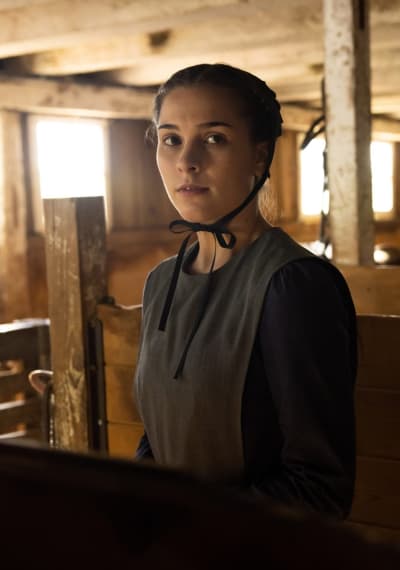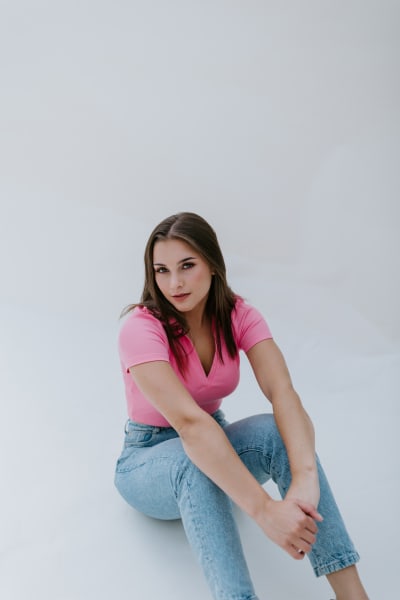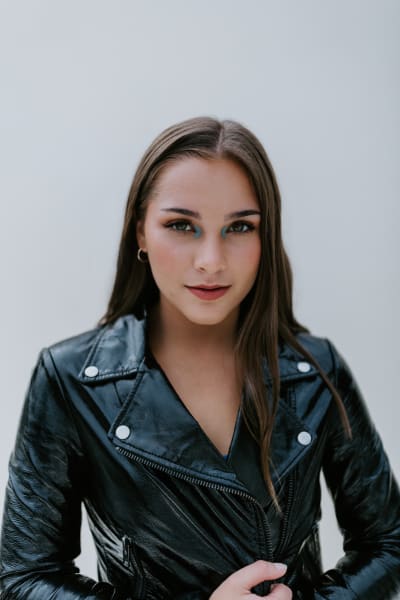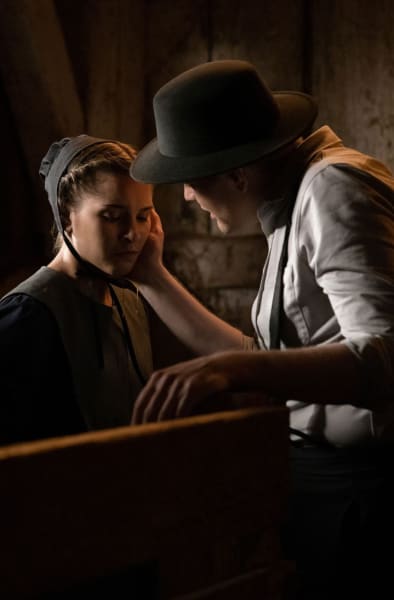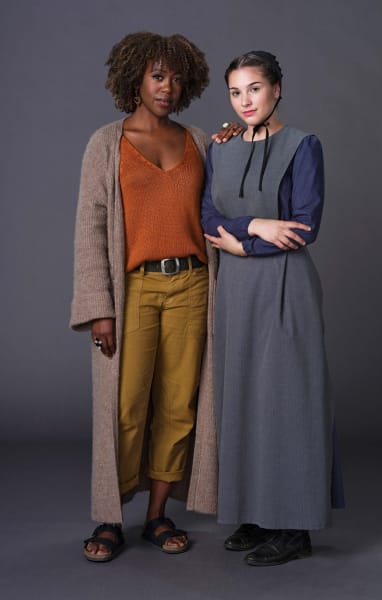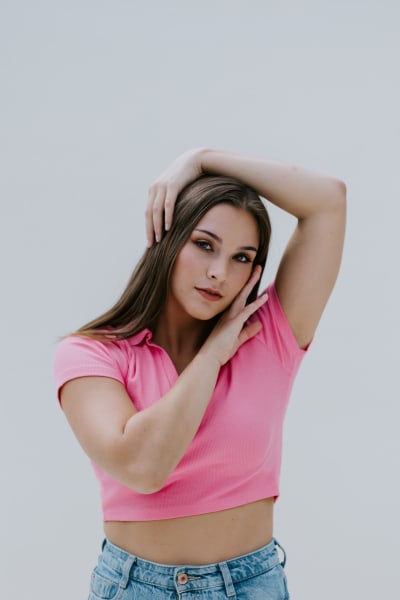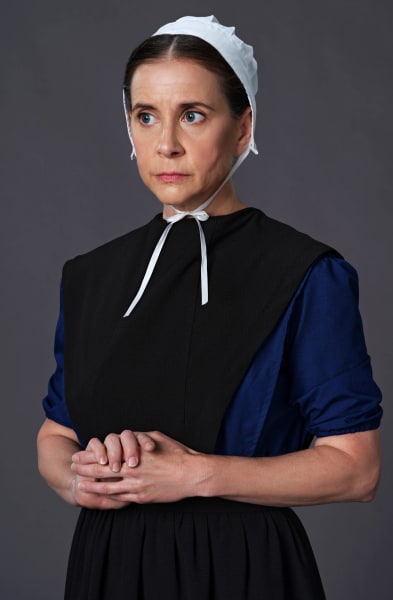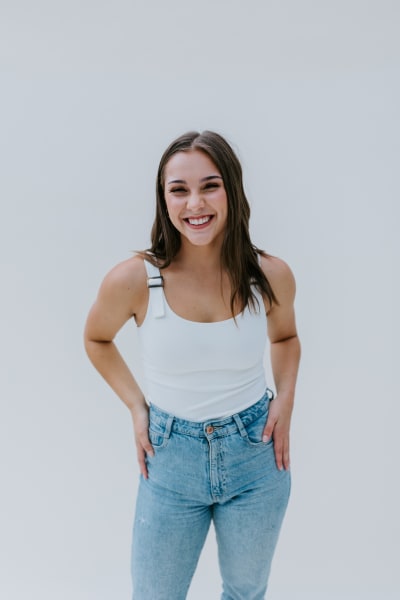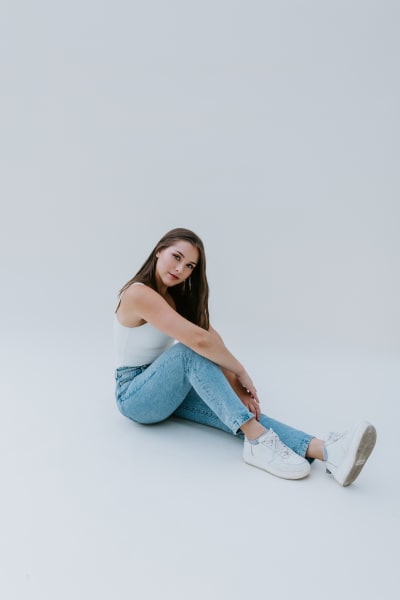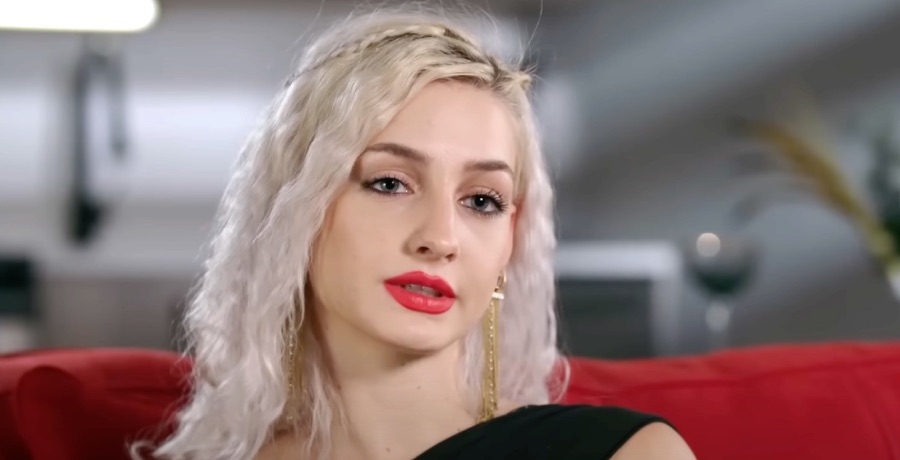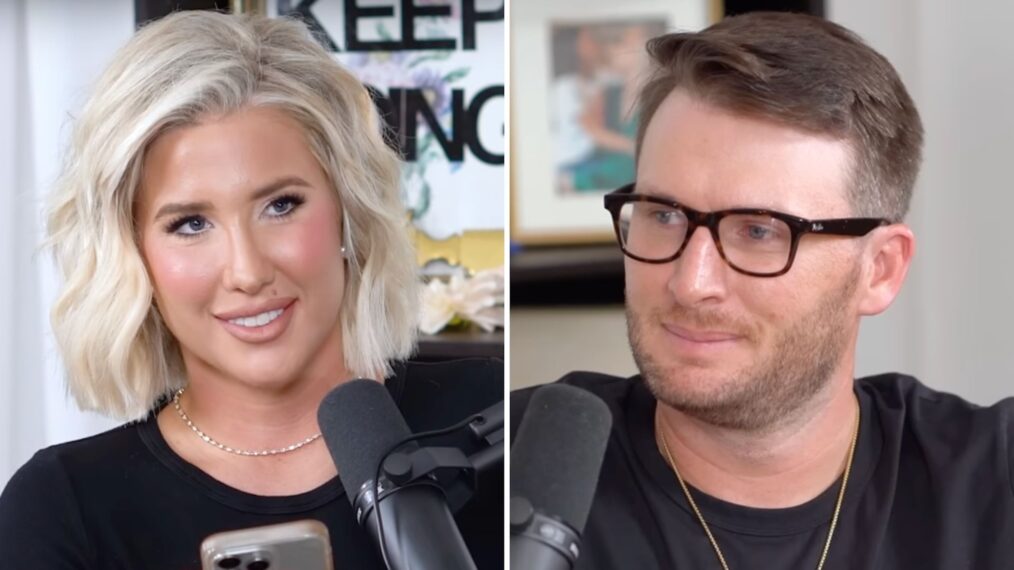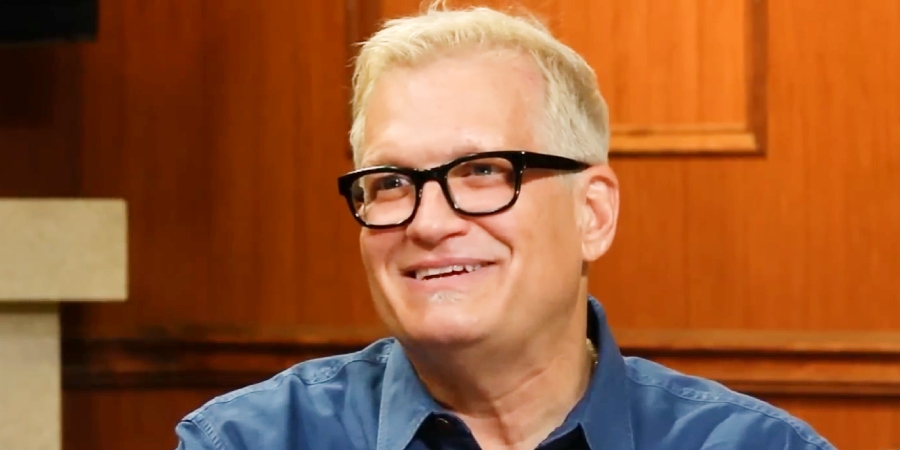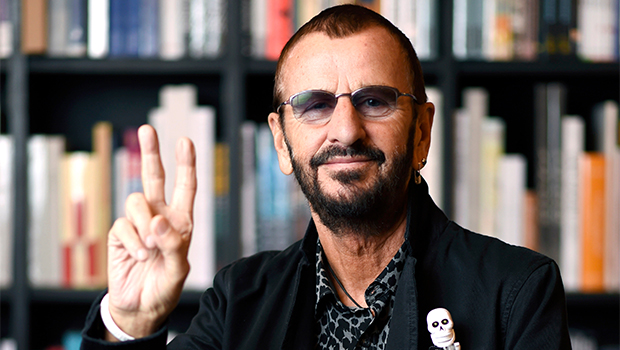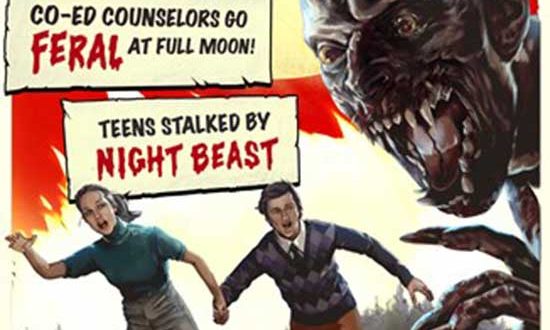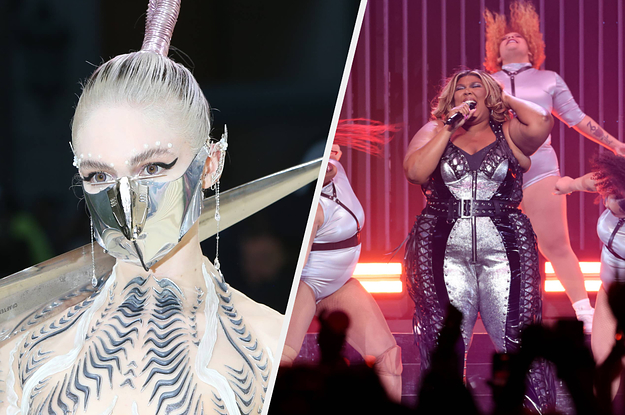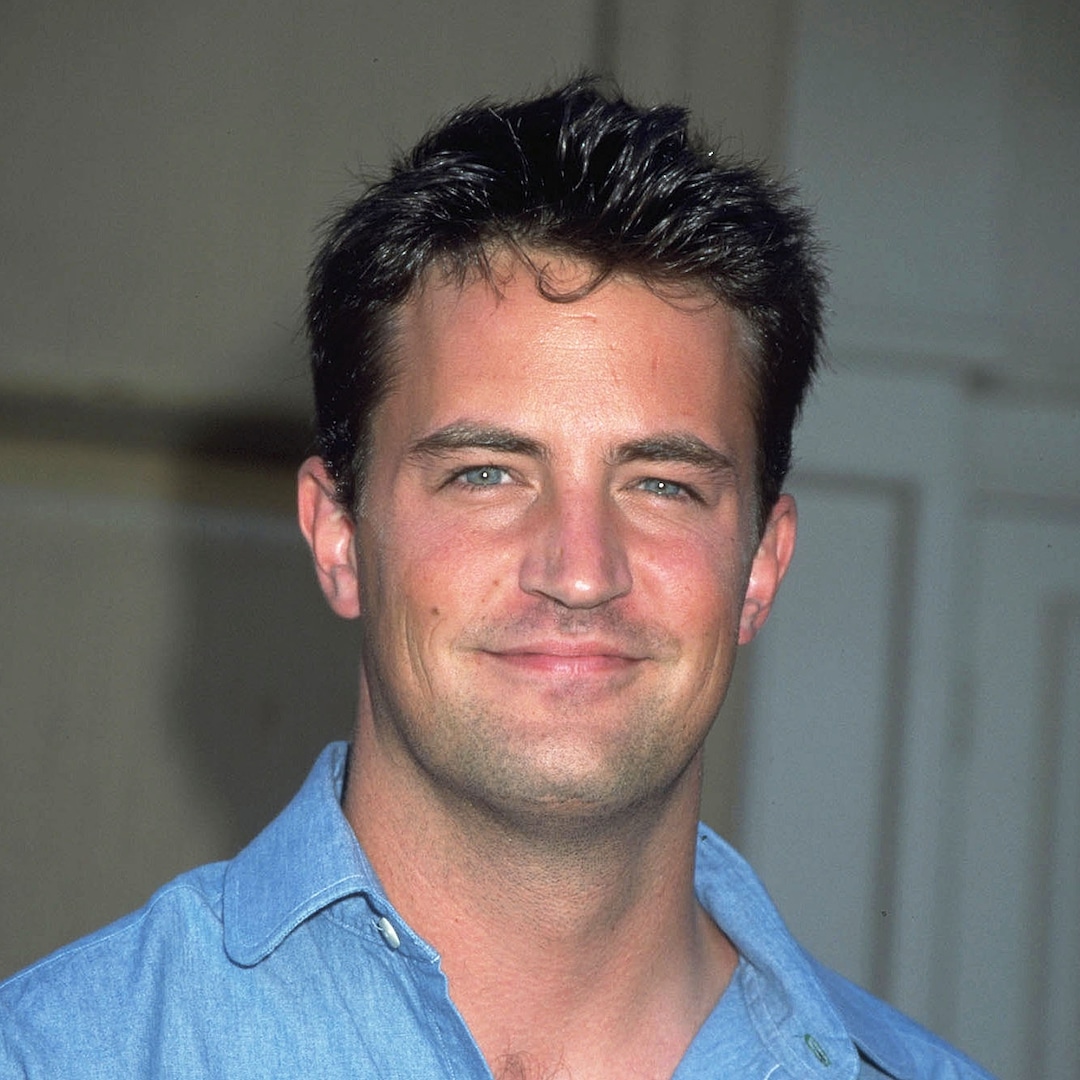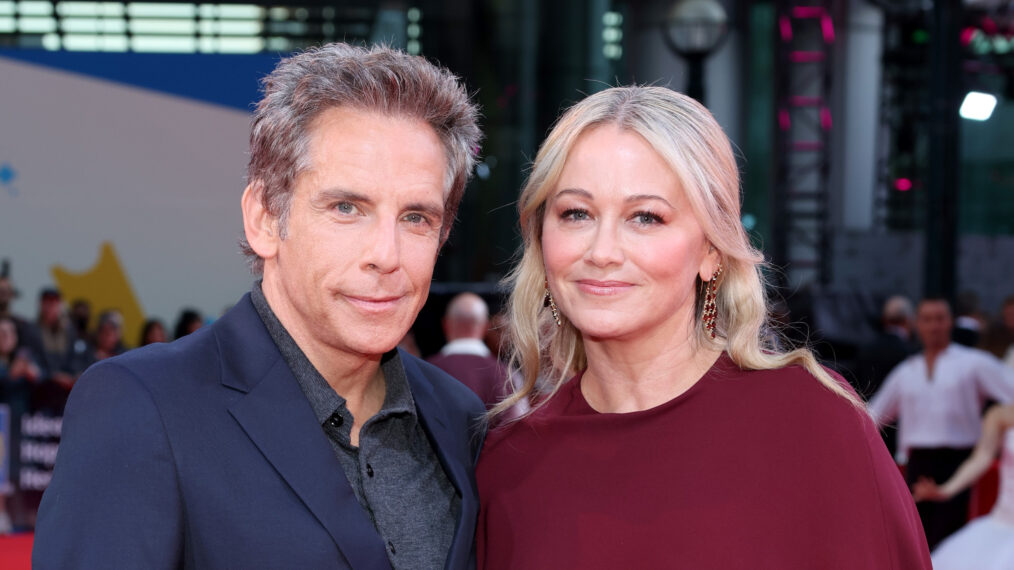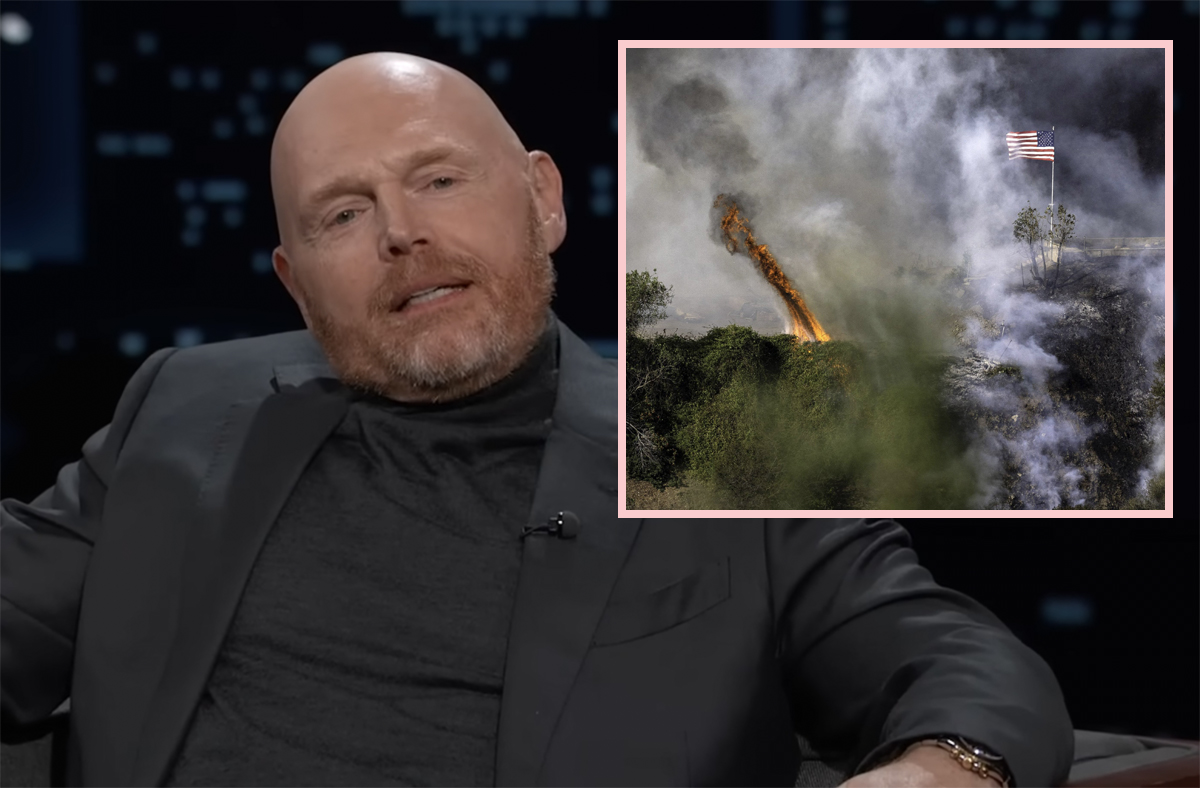Rising star Dylan Ratzlaff is one to watch.
The young actress makes her leading debut in Lifetime’s An Amish Sin with a powerful performance as an Amish teen, Rachel. The film, inspired by true events, is a moving piece, and Ratzlaff is the very heart of it.
We were fortunate enough to catch up with the star to discuss the film, dance, and so much more. Check it out!
Let’s jump right in. You were fantastic. And it was a really powerful performance.
Thank you.
How did you get involved with this film? What attracted you to the role?
I get a couple of auditions a week, and I got this one in my busiest season because I’m also a dance teacher. I was at a competition running around. But reading it, I felt that it was an amazing film.
My background is actually Mennonite, which is similar to Amish. I don’t necessarily practice that at all. I always tell people Mennonites aren’t allowed to dance, and I do.
But it was like my background, and I thought it would be so fun to dive into and see what it was like for all the people before me, in a sense. It’s just such a powerful story; everything drew me into it.
Wow! That adds an extra layer to your performance. I planned to ask if you were familiar with the Amish or Mennonite communities and what type of research you may have done.
I didn’t know much about it. My first call was to my Grammy because she had more insight. She went to the church where men and women were separated and all of that. When I go to church, it’s nothing like that at all. I didn’t have any experience similar to the Amish, but at least I had resources and people around me that I could ask.
Rachel has quite a journey, and it was powerful watching her come into her own and own her voice. How did that resonate with you?
I think it resonated with me even on set, being a female lead, and it was my first massive lead role — it was something I was so nervous going into. But as time went on, I felt more confident, and I was able to command the set in a sense, be super communicative with the director and find that lead position.
As Rachel went through this journey, I felt like I was going on the same journey through set life. It was super empowering, and at the end of the film, I was like, “Okay, I did that.” You spend so many hours on set, and when you have the time to debrief and look back, you’re like, “wow, I just did that.” I had that through Rachel and Dylan on set.
That’s amazing. Honestly, I’ve been a huge fan of Lifetime my entire life. I always appreciated how it elevates women, whether portraying diverse stories from all types of women or allowing them to thrive in front of and behind the camera.
Being a female lead and also, I’m only 21 — they gave this opportunity to someone my age; it’s a big thing. The executive producer and I talked, and she’s like, “You will never see another role like this.” It’s super huge. I was so grateful to Lifetime for giving me the opportunity.
I feel like they will give you plenty more opportunities.
Thank you. I’m hoping.
I always love talking to actors who are dancers just about how movement influences their acting because you guys act with your whole body. I could visibly see the timidity of Rachel in the early stages and how it slowly shed along the way. Is that a conscious thing that you bring to your performances?
Totally. Yeah. I think that’s something I’m very conscious about bringing into all roles. How can we communicate through our bodies?
This was the perfect film to show that because women aren’t really allowed to speak. Immediately I was like, well, if they can’t say it through their voice, they have to say it through their body on how they’re feeling. It’s the secret language they have with each other.
You’ll see at the beginning that everything is so contained, and I’m almost hunched over all the time, unsure of myself. Then slowly, it’s like my chest is just opening up, and I feel like I can breathe — I don’t feel this restraint.
I talked to the director, and he’s like,” One of the reasons I hired you was because you’re a dancer, and this needs body language.” And that was something I consciously worked on with the director and in my own time.
It translated well on screen. In many ways, the physical performance of it was just so impactful, maybe even more so than the rest.
The scenes with Uncle Iddo would make your skin crawl. Michah Steinke was great, he played such an awful character, but he did it well.
He was the nicest person, too! It was so hard. On set, he was making jokes. He was such a contrast from his character.
I appreciated that we didn’t have to see anything to understand what transpired. That’s a very effective and conscientious way of telling stories like this. I commend you all for that.
Oh, yeah, for sure. Especially in the kitchen scene, right? You don’t see anything but hear the screams and all that. I feel like that’s way more impactful. It just feels like this empty room, and you could feel that everyone in the house heard what happened. It was such a great decision by the director to do that.
I agree. The direction and cinematography felt very conscientious; it was strong all around, along with the acting and so forth.
Rachel had so many complex relationships. One of my favorites was her dynamic with Grace. I loved that relationship and sisterhood. Can you talk a little bit about that?
Yeah. It’s a relationship we developed through the movie because I was like, “Who is Grace to me? How much time before I trust her?” Because I’ve come from this place where I feel like I can’t trust anybody.
The most significant changing point in our relationship was when she said, “As a survivor…” I immediately had this deeper connection with her. And that’s something we changed on the day of filming because I felt Rachel needed something to allow her to accept Grace and have that similarity. I think that was just a huge thing for me.
And also to see Grace and Cleve and what a real relationship should look like. It gave Rachel hope. It was like, so that’s what love is. It’s not submission.
And I think that was a big thing that she like taught me about how we should live in the world, in a sense. Grace is truly the person that made me discover who I was. That’s why there’s all this imagery with the camera, the photographs, and who you want to be. Grace gave me the space to do that and those little nudges when I needed them.
I love that dynamic with Cleve and that Rachel got to see a man in a different context than how she grew up — someone who didn’t bat an eye at serving her. He was mindful of where she came from while showing her what life could be like beyond what she previously knew.
Yes, for sure.
Of course, Rachel had a complicated relationship with her mother and eventually realized how trapped she was, too. Can you discuss that a bit?
In the beginning, Rachel sees that her mother doesn’t love her or anything she does, and she will never measure up. There was kind of this like distance between the two when all her mother was trying to do was save her from the kind of pain that she had to go through.
And this whole movie, I think that she doesn’t love me and what I’m doing is completely wrong. But at some point, there’s that switch where she’s like, I see you. And I could understand where she was coming from. I honestly felt sad for her and wished she had the strength to leave.
It was kind of this surface-level relationship in the sense that we looked like we didn’t love each other, but we cared so deeply for each other, but we could never say it because you’re not allowed to share many emotions in the Amish community. That was just a super interesting dynamic. There were two levels to that relationship, and neither knew where we were in those.
Even compared to Rachel’s experience with her father, her mother was more sympathetic. With her father, it was difficult to watch.
It was, yeah. That dynamic they had went all the way to the end. My dad doesn’t think what he’s doing is wrong. He thinks he’s following what he’s supposed to do. They think they’re doing good by shunning these people. It was such an interesting dynamic.
After experiencing a film like this, what words do you have for survivors like Rachel?
When I was going through my research and hearing all these people’s stories, I think the biggest thing was seeing how much courage they had.
Never discount how hard it is to speak up. Sometimes we’re like, Oh, well, you can just say something, but it’s super difficult. The biggest thing is getting a network of people that can help, even if it’s just one person.
For me, for Rachel, that was Grace, and she was that person that allowed Rachel to say something. You should never truly do it alone. It was so difficult hearing so many stories like this, and it’s something that never leaves you.
That healing process will come in waves. Sometimes there may never be an endpoint, but just having that projection upwards, I think, is a big thing, and knowing that some days will be harder than others. But healing does come in waves. I think that’s a big thing.
What’s the biggest reason you want people to tune into this film?
It’s not just about the Amish community. Yes, we’re talking about that community, but it’s for every person who has ever felt stuck and like they have a loss of identity. That’s something I believe that everyone has experienced at some point: we feel lost, and there’s no identity, and we feel like it’s never going to get better.
I hope that when they see this film, they’re inspired by Rachel’s courage and then can do the same thing. And whatever situation they’re in, if it’s abuse or something different, they can leave it and choose to pick themselves over submitting to what they’re doing in their current situation.
What other projects do you have coming up? I mean, I’m looking at your work. You seem like you’re always busy.
I recently just worked on Cruel Summer, a super fun thing to be a part of. It’s funny because I feel like my work is always dual. Whenever I’m not acting, I’m doing dancing things. I’ve booked some traveling judge dance competitions. I get to travel across Canada and judge competitions. So I’m working in both worlds a little bit right now.
It must be fun to do both things you’re passionate about. How did you get into both dance and acting?
I’m fortunate that I get to do this for work. I can’t believe it each day.
But the funny story is that I was a really terrible child to my parents. [Laughs] I would throw things — I’d call it spirited. My parents might say something different, but they said, ” Okay, we need to get this kid into something that she can express her emotions.” And so my sister had a dance thing, and they figured they’d try it with me, too.
It immediately stuck with me at three years old. I loved it so much. And it was a way I could translate all the emotions I was feeling through movement. And so I did that for all my life.
Then I started doing auditions because my dance teacher thought I should start auditioning. And so my first film and TV audition I booked, which was the craziest thing, but it was for a show called The Next Step, and it was a mockumentary about a dance studio. They hired dancers and taught them how to act.
I got thrown into this, not knowing how to act, but I used the tools from dancing. And that was when I was 15. From there, I was like, “This film thing is kind of cool. I really like this.” And so I came home and started to train. And that’s kind of where that stemmed from.
—————-
An Amish Sin premieres Saturday, October 29 at 8/7c on Lifetime. Tune in to see Ratzlaff’s performance!
https://www.youtube.com/watch?v=G6g60Qo9gjY
Jasmine Blu is a senior staff writer for TV Fanatic. Follow her on Twitter.



